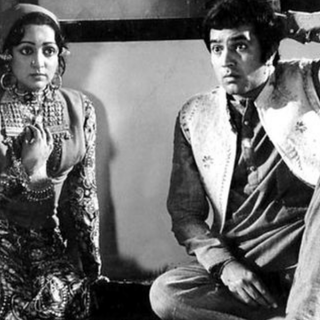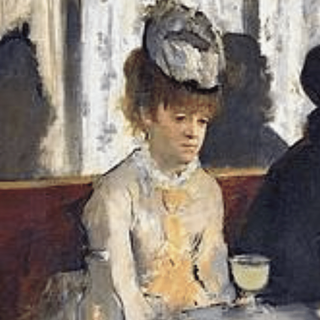
Why We Don’t Recollect Words at the ‘Tip of the Tongue’
Some researchers say a tip-of-the-tongue feeling, called lethologica, reflects a good memory, not a bad one.

“You know, the actor guy! Oh, what is his name? See… the thing is that when I say his name, you’ll go, ‘Yes! The actor guy, love him, adore him . . ..’ But I can’t think of his name,” a character in an Australian show says, defeatedly. “It’s on the tip of my tongue.”
This is not an unfamiliar feeling. Called lethologica, the “tip of the tongue” (TOT) phenomenon is a common affliction, referring to the temporary inability to retrieve a piece of information from memory. Just like the character, we may know something, but our ability to recall may lag behind. Think of the many times the name of a writer, or a book, or an actor dating someone eludes us. “It will come back to me,” we say, in response.
New research, published in Frontiers last month, shows the chances of this happening is more in a group setting. When people try to remember things together, the lethologica is more pronounced. To show this the researchers presented groups of four people with 80 general knowledge questions. Which planet is the closest to the Sun? What is the capital of Azerbaijan?
They compared the answers with when people responded to the questions individually. People in a group were more likely to say the answer was on the tip of their tongue than individual people. “It is the feeling of having ‘caught’ the tip-of-the-tongue, as if the feeling were contagious,” Luc Rousseau, a professor of psychology at Laurentian University in Canada, noted in The Conservation. The findings are interesting because most research on lethologica has focused on the individual, not the group.
The reason for the collective lapse in remembering something instantly is two-fold. One, the idea of “socially contagious” impacts people’s ability to remember. If someone says “Oh, I know this!” or “What was the name of the movie again?” it creates a ripple effect. Even if people are on the verge of remembering things, the flow of thought might derail someone in a group from reaching the answer.
Two, is the illusion that people in a group may have a higher chance of remembering something than an individual. “Such a guess may drive a stronger feeling of closeness with the target word, triggering a tip-of-the-tongue feeling in one (or more) people in the group,” Rousseau noted, adding that this factor is more powerful than the social contagion aspect. The tip-of-the-tongue feeling is tied to people’s ability to make an informed guess. The chances of that happening are presumably higher when more people are guessing. “If I can’t remember it, they will,” is the reining idea.
Related on The Swaddle:
How Can We Understand a Language, but Not Speak It?
While lethologica may imply a memory failure, previous research noted the phenomenon reflects a good memory, and not necessarily a bad one. People can pinpoint the number of letters or syllables, the word’s first letter or the last, even words that sound like what they’re trying to chase.
“[S]peakers generally have an accurate phonological outline of the word, can get the initial sound correct, and mostly know the number of syllables in the word,” linguist George Yule noted “The Study of Language.”
This clue-finding mission is also linked to the idea of making informed guesses. Earlier studies likened this to an investigation. Just like investigators may rely on clues to find an answer, people may depend on low-hanging fruits, associated with the question in hand, to reach the answer. The more clues people remember, the higher the chances the word or term is available in memory, and the closer people think they are to remembering it.
For instance, what is the name of Dorothy’s dog in “Wizard of Oz”? It starts with a T, has two syllables, has a repetitive sound. Don’t worry, it will come back to you. Lexologica is also tied to theories of word association and word perception.
Research about the tip-of-the-tongue phenomenon has also fascinated linguists. For linguist Bennett L. Schwartz, the state outlines the boundaries between language and memory. He takes the example of former U.S. President George Bush, whose failure to find words in his speech was pointed out by several political experts. “Despite his obvious depth of knowledge and expertise, his speech was sometimes characterized by pauses suggesting a failure to recall a known word. His deficit was usually attributed to absent-mindedness, rather than a lack of clear thinking. In other words, it was dismissed as a language-production failure, not a more consequential memory failure,” Schwartz noted.
Lethologica comes from the Greek words are lethe (forgetfulness) and logos (word). “Lethe” in Greek mythology is one of the five rivers in the underworld, where dead souls go to forget earthly memories. The phenomenon reflects how memory works, how the “brain does not function like a computer, where data is neatly stored away and retrieved at the press of a button.” Mark Gwynn noted in BBC Future
The observation suggests that any word may thus register itself in two forms. It is even possible to hold the meaning of a word in mind without retrieving its form. “In assembling speech, we first identify a given word by some kind of abstract meaning code and only later insert its actual phonological form into the utterance we are planning,” linguist John Field wrote in his book, explaining how this process unfolds cognitively.
TOT may even serve an evolutionary purpose. It prompts people to keep searching memory and finetuning knowledge, some researchers suggest. In other cases, TOT may also help people prioritize information in their heads.
Lethologica may be the most familiar human attribute. It might be best to put minds at ease. For now, did the name of Dorothy’s dog come back to you?
Saumya Kalia is an Associate Editor at The Swaddle. Her journalism and writing explore issues of social justice, digital sub-cultures, media ecosystem, literature, and memory as they cut across socio-cultural periods. You can reach her at @Saumya_Kalia.
Related


It’s Okay: To Be Mediocre
